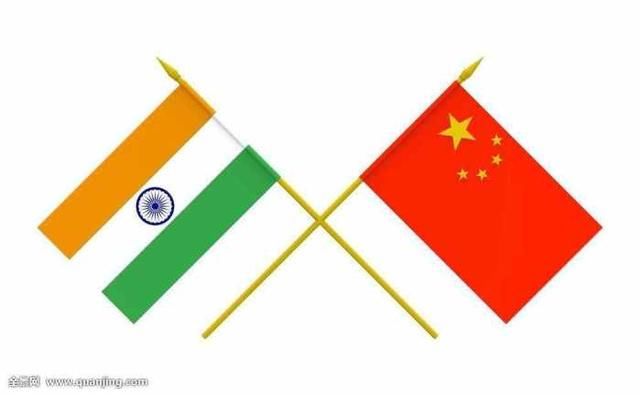印度网友热议: 印度能成为中国那样的制造大国吗?
傻大方提示您本文标题是:《印度网友热议: 印度能成为中国那样的制造大国吗?》。来源是奇闻大箩筐。
印度网友热议: 印度能成为中国那样的制造大国吗?。大国|制造|网友|a+|中国|印度---
关注
近日有印度网友在该国论坛布了这么一个帖子:印度能成为中国那样的制造大国吗?
引发网友纷纷评论,评论翻译如下:(如有翻译错误,纯属偶然)
(ps:以下外国网友评论,均不代表小编的看法。)
译文来源:Quora中文网
Let’s say you need to move a big log of wood. In village A, they use 10 humans to lift it up and drag it through for 10 hours. In village B, they build a inclined plane to move the same log in 2 hours with 4 people.
In short, it takes 100 man hours to move a log of wood in village A and just 8 man hours in village B. Even if village B’s labor costs are 12x of village A, they would be cheap.
The cost of a product is not determined merely by the wage cost.
In India, we are like the village A – we use crude tools and backward infrastructure. Just an example – our workers carry large gunny bags for loading and unloading luggage, while in developed world they use more effective tools.
In India, something as simple as a bullet train brings a nationwide discussion, while China implemented many HSR lines when their GDP levels were same as where we are now. Every damn thing in India has to be debated and fought.
Balaji Viswanathan,多次前往中国
假设你想要移动一块大圆木。在A村,他们用10个人把它举起来,并花了10个小时拖走它。B村,他们建了个斜坡,在2个小时内用4个人将同样的圆木运走。
简而言之,A村需要花100工时移圆木,在B村只要8个工时。即使B村的劳动力成本是A村的12倍,他们也是便宜的。一个产品的成本不仅仅取决于工资成本。
在印度,我们喜欢A村——我们使用简陋的工具和落后的基础建设。举个例子——我们的工人用大麻袋来装卸行李,而在发达国家,他们使用更有效的工具。
在印度,像高铁这样简单的事情会引发全国性的讨论,而中国在GDP水平和我们现在差不多的时候,就建设了许多高铁路线。在印度,每件事情都必须争论和争斗。
Last week I traveled to China as a part of Indian business delegation. When we showed our product to the government there, we got the government to give us a grant to set up a new factory, with free rent for 3 years and money to buy equipments [it comes with a few other strings though]. The electricity is cheap and same is the cost of logistics.
In India, I have to beg our government to do business. I’m a citizen and reasonably well educated and connected, and I find it so hard to get access to the government. For a simple VAT registration the Karnataka government made us run pillar to post. When importing a new technology made by the Russians, our stuff was held in customs for weeks. And we pay 42% customs duty on all those. Electricity is costly and real estate costs are obscene. Oh, the logistics – very hard.
No loans, no grants, no subsidies. Local governments don’t care about our existence until the time comes to pay taxes.
上周,我作为印度商务代表团的一员来到中国。当我们向这儿的政府展示我们的产品时,我们得到了建设新工厂的政府授权,免租3年,还有钱购买设备(尽管附带了其他条件)。电力和物流成本低廉。
在印度,我必须乞求政府做生意。我是一位公民,接受了良好的教育,人脉广泛,我发现很难接触到政府。就一个简单的增值税登记,卡纳塔克政府让我们四处奔走。当我们从俄罗斯那里进口一项新技术时,我们的东西被扣在海关好几个星期。我们为此支付42%的关税。电力成本很高,房地产成本也很可恶。哦,物流,太难了。
没有贷款,没有补助金,没有补贴。在纳税之前,地方政府不关心我们的存在。
If I make the same product in China than in India, my costs would be significantly lower even though I will be paying a higher wage to people. We have some questions on IP rights, but that is an altogether different issue.
For now, for the sake of patriotism, language comfort and better IP protection we manufacture in India, but we don’t know how long we can sustain. Eventually the question would come – is it better to close down the business altogether or have at least half of it run in India while producing the rest of it abroad. That’s the question facing many Indian manufacturing businesses.
比起印度,如果我在中国生产相同的产品,我的成本会大大降低的,即使我将会付给人们更高的工资。我们在知识产权上有一些问题,但这是完全不同的问题。
现在,为了爱国主义、语言舒适和更好的知识产权保护,我们在印度生产制造,我们不知道我们能撑多久。最终,问题将会出现——最好是彻底关闭整个业务,或者在印度运营的一般,然后在国外生产剩余的部分。这是许多印度制造业企业面临的问题。
In India, we take our entrepreneurs for granted. Government makes majority of its taxes from corporations [corporate taxes, GST, excise & customs duties], but our people think of us as though things to be milked than to be helped. Infrastructure development is pathetic and we have to pay very high electricity rates to subsidise someone else. For small businesses the headache of following regulations are very high and for large businesses labour laws are a pain.
Until we fix these, we will not be able to utilise our lower wage levels. Until our entrepreneurs set up factories and offices, there won’t be many high paying jobs. And until there are many high paying jobs we won’t become a developed nation.
Until our attitudes towards business change, we will struggle to grow.
在印度,我们认为企业家是理所当然的。政府的大部分税收来自公司(公司税、消费税、消费税和关税),但我们的人民认为我们要被压榨,而不是被帮助。基础建设的发展很可怜,我们必须支付高电价补贴其他人。对小企业来说,遵守条规很头疼;对大企业来说,劳工法让人痛苦。
在我们解决这些问题之前,我们将无法利用我们较低的工资水平。在我们的企业家设立工厂和办公室之前,不会有很多高薪工作。在有很多高薪工作之前,我们不会成为一个发达国家。
在我们改变对待商业的态度之前,我们将很难成长。
大国|制造|网友|a+|中国|印度---傻大方小编总结的关键词

Krishnan Premanand, Lived in China for a year
Answered Sun
In end 80s India and China were more or less in the same status with respect to manufacturing( and pretty much every other sector). But then during their 9th Five-Year Plan , China made some conscious decisions. They decided to develop advanced manufacturing. One strategy was to attract FDI and foreign investments. They allowed foreign companies to setup joint ventures. To support this goal, they decided to upgrade all infrastructure like roads, electricity, railways, airports , shipping etc. The next strategy was to negotiate its entry into the WTO and this paved the way for China to become a part of the global supply chain network.
Krishnan Premanand,在中国住了一年。
80年代末,印度和中国在制造业上的地位或多或少相似(在几乎每个领域都如此)。但在“九五”期间,中国做出了一些清醒的决策。他们决定发展先进的制造业。
一种策略是吸引外国直接投资和外国投资。他们允许外国公司设立合资企业。为了支持这一目标,他们决定升级所有基础建设,如道路、电力、铁路、机场、船运等。
第二个策略是,谈判加入世贸,这为中国成为全球供应链的一部分铺平了道路。
More or less at the same time, India decided to abolish its licensing system as a part of the industrial Policy system. The similarity of intention ends there. The key difference was the participation of government. Infrastructure support is one of the biggest stumbling block for India. As the government did not bother to invest in this area as much as China did at the same time. This crippled manufacturing sector which needs this infrastructure to flourish. This meant that India could achieve growth only in service sectors like Information Technology, BPOs, etc. where infrastructure plays no role. Even now in 2017 infrastructure in India is years behind what China had in 2000.
差不多同一时间,印度决定将作为产业政策体系一部分的特许制废除。意向相似之处到此结束。关键区别在于政府的参与。基础建设的支持是印度最大的障碍之一。因为同一时段,印度政府不像中国政府一样尽心投资这一领域。这削弱了需要基础设施以蓬勃发展的制造业。这意味着印度仅能在如IT、BPOs等领域实现增长,这些领域不需要基础设施的作用。即使在当前的2017年,印度的基础设施也落后于2000年的中国数年。
大国|制造|网友|a+|中国|印度---傻大方小编总结的关键词

There are many other minor reasons for this difference in manufacturing capabilities. One such reason is the multi party system where different parties ruled in the central and in the states with each having different objectives. This is quite different to the Chinese political structure where Central and State have the same goals and directives. Another is the sales taxes which created hindrances in transport of goods (one of the main determining factors in manufacturing) , the new GST system has come a bit too late to give India the lead..
还有许多次要原因导致了制造业能力上的区别。其中一个,多党制,治理中央和地方各州的不同政党拥有不同的目标。这和中国的政治结构区别太大了,他们的中央和地方拥有相同目标和指示。
另一个原因是,销售税造成了货物运输的障碍(运输是制造业的主要决定性因素之一),新的GST系统已经有点太迟了,不能带来印度领先地位。
Good thing about the concentration in service structure is that India grew big enough to get into BRICS. But the bad thing with purely service based growthe was that the growth was restricted to only to the highly educated class. Predominantly the growth was restricted to a few A class cities. Such concentration of growth, money and wealth in certain areas meant that this disproportionate distribution has created discontent and increased problems in law and order. What else do you expect when a new comer in IT industry earns in a month what many middle class farmers earn in their lifetime. To make matters worse justice in India is very delayed.
好的是,服务结构的集中,让印度强大得足以进入金砖国家。不好的是,纯粹以服务业增长为基础的增长,仅限于高等教育阶层。主要的增长受限于一些一级城市。
这样浓度的增长,金钱和财富集中于某些领域,意味着这种不成比例的分配已制造了不满,并增加了法律和秩序的问题。
当IT行业的新人在一个月里赚到许多中产阶级农民一生的收入时,你还能指望什么呢?更糟糕的是,印度的司法非常滞后。
大国|制造|网友|a+|中国|印度---傻大方小编总结的关键词

- 38岁的女人爱健身,体形保持非常好,网友:背部曲线太迷人!
- 世界上耐力最强的人类,53岁连跑80个小时,网友:这持久力服
- 4大民间最猛减肥偏方+网友推荐月瘦30斤秘方,不瘦才怪!
- 密子君一顿甜品吃了5000块,颜值遭遇滑铁卢,网友:猪鼻子?
- 大码健身模特,三围远超卡戴珊,网友:这曲线欣赏不来!
- 环卫工丢手机 众网友接力寻找
- 迪士尼的唐老鸭把网友萌翻了:哄半天发现抱错孩子
- 海尔兄弟穿衣服了!网友:你们还我童年
- 超百万网友关注社区体育文化公园建设 他们都提了啥意见?
- 视频|八旬老人车流中蹒跚穿行 网友路过拍下暖心一幕
